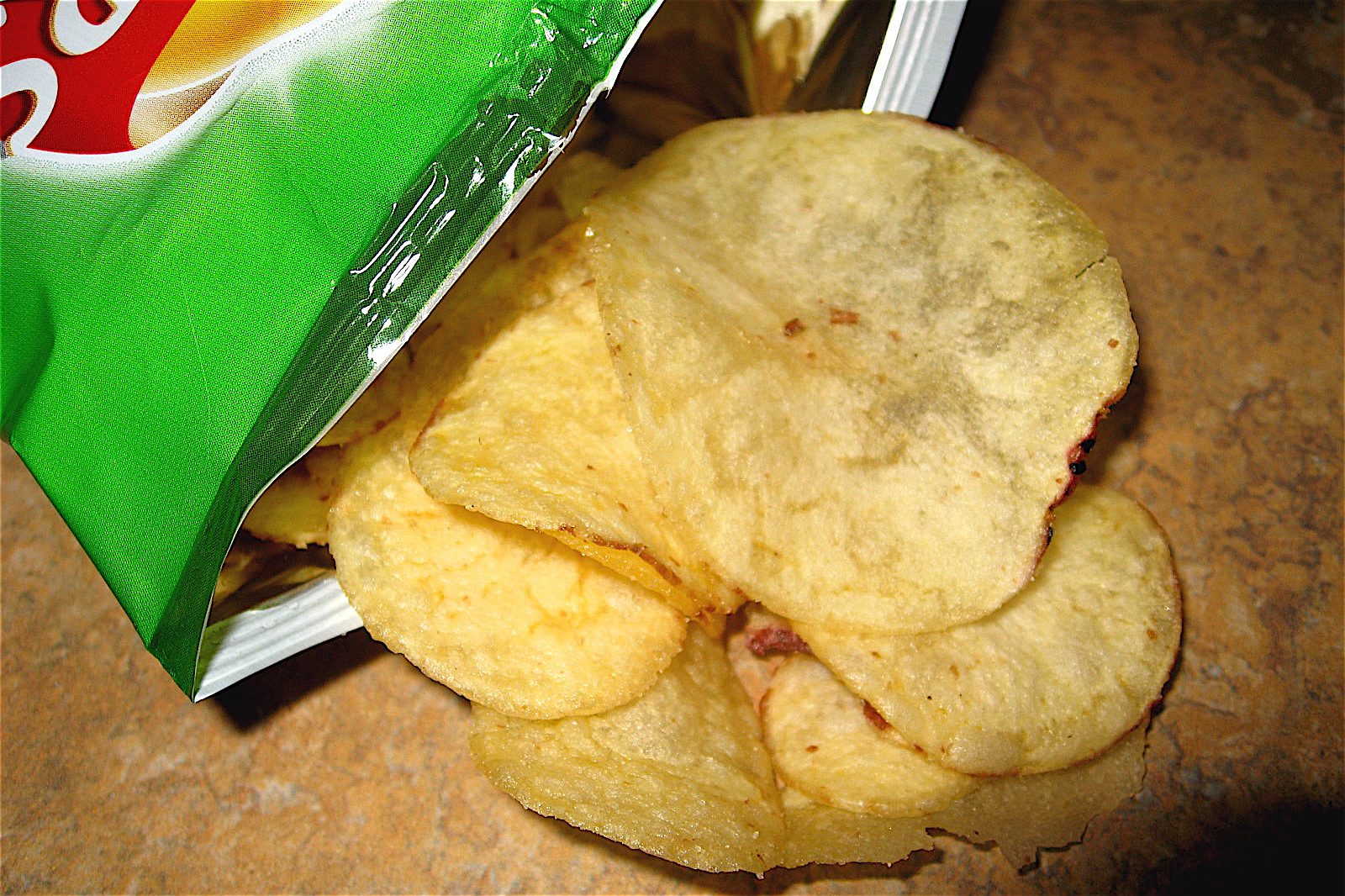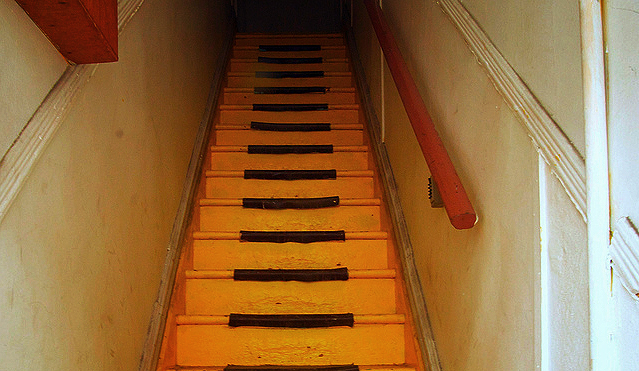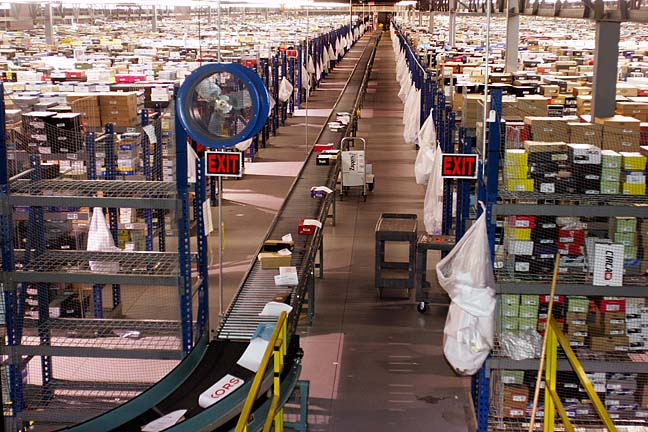Matt Tompkins
By the time my aunt arrived at the hospital, my uncle was dead. They’d rushed him from his office where he’d been working late. They said it was a massive heart attack, which you couldn’t say was totally unexpected: He smoked box upon box of a particular brand of fat, black cigars and he never met a bottle of brown liquor he didn’t like. But still, these things come as a shock.
I got to the hospital just a short time after my aunt did. She’d called me from the car on her way there. I was the nearest living relative, geographically speaking, and she was my mom’s favorite sister, though if I’m honest, I wouldn’t say we were all that close. But from what I ever saw, from the arm’s length at which I admittedly stood, they really seemed to love each other, my aunt and uncle, in a way a lot of long-married couples don’t. They didn’t have kids, and I got the impression that was by choice—they appeared contented and self-contained. They always seemed young to me, though they were older than my parents. It was probably because they were so openly romantic that they retained that air of youth. One of my aunt’s best-loved stories was about a trip they took, or tried to take, to the Caribbean for her fortieth birthday. Foul weather stranded them at the airport in Florida and my uncle went to great lengths to make sure my aunt didn’t go without a celebration. He bought her a souvenir magnet that said “Someone in Fort Lauderdale Loves Me” and wrapped it in magazine pages. He made paper hats for them both out of a USA Today and got a flight attendant to smuggle them contraband airline bottles of booze, which they swigged with a slice of pound cake from a cafe kiosk in the terminal.
When I reached the door of the hospital room, my aunt looked like she’d been crying but was holding herself together. She was standing by the bed that held my uncle’s lifeless body, the mountain of him covered to his neck with a dingy gray sheet and a thin, nappy blanket. She had uncovered his left hand and was gripping it with one of hers, while with her other hand she brushed his graying hair back from his forehead. I hadn’t even gotten a chance to give her a hug, or say how sorry I was, when the doctor who’d declared my uncle dead left the room and an intern—a mildly disheveled, exhausted-looking guy around my age—walked in behind us and noisily cleared his throat. My aunt startled, then stared at him.
“Sorry,” he said. “I don’t mean to disturb you. And I’m so sorry for your loss. I was sent to ask: Would you like to know what your husband was thinking about when he died? What his final thought was?”
My aunt shook her head. “I’m sorry, what?”
The intern frowned. “Nobody told you? Well, it’s a pretty recent advancement. But we’ve found that the last thought gets kind of burned in when the brain shuts down. Like a photo negative. I mean, that’s a not-so-technical way of putting it. You can say yes or no. About half the people want to.”
My aunt was silent for a minute. She looked from the intern, to me, then back again. “I really don’t know,” she said. “It seems so, I don’t know, eerie?”
The intern paged with his forefinger through several screens on a small tablet computer. “If you do want to, you’ll just need to sign this waiver, releasing the hospital from liability, in case the thought were to, well, in case of unwelcome surprises.”
My aunt took a deep breath, held it for a moment, let it out. “I don’t know,” she said again, more to herself than to anyone else. “I suppose I’d rather know than wonder.” Her hands were balled up at her sides, like she was worried the revelation might take a swing at her.
“All right then,” said the intern. He handed the tablet over to my aunt and pointed. “Just read through the release and sign here.”
She didn’t bother reading, just signed with her finger and handed the tablet back.
“Thank you,” he said. “Okay, so… It looks like it was… Potato chips.” He looked up at us, his face impassive.
“Potato chips?” said my aunt.
“Yes,” he said. “It’s an image of an open bag of potato chips, and also what looks to be a can of soda?” He turned the tablet around to show us. “Perhaps your husband was eating when he—when the cardiac event occurred? I understand a lot of them tend to be mundane like that. People are sometimes disappointed. But it makes sense that it would be an immediate sensory impression, because the brain is shutting down and….” He seemed to realize mid-sentence that this was not the time to share his academic zest for the subject. “Anyway,” he said, “now you know.”
My aunt sighed. “I guess I should be glad he wasn’t thinking about another woman or a secret family or something, right?”
“We’ve had some of those,” said the intern. “That’s why we have the waiver.”
My aunt nodded. “Okay, well, thank you.”
After a brief, uncomfortable silence, the intern said, “Maybe I should give you a minute.”
He left the room, and a moment later my aunt did the same. She walked down the hall and stopped at a brightly lit vending machine. Uncertain what to do, I hovered in the doorway, not wanting to leave my aunt, or my uncle’s body, alone. I watched from a distance as my aunt fished coins from her purse, fed them into the slot, and mashed the buttons on the keypad until the winding metal coil released one, then another, then a third foil-wrapped packet of chips down into the machine’s plastic jaw. She scooped them up, sidestepped, and did the same thing with a trio of canned sodas. She came back to the room, her arms full, and set one of the bags of chips and one of the sodas on either side of my uncle’s head. She set one of each down for herself and handed the others to me.
“Thanks for coming,” she said.
“Oh,” I said, “of course.”
She hugged me and I could feel some part of the gravity that had hit her, the weight that had settled in her leaden limbs.
She turned off most of the lights in the room, which seemed more fitting for a vigil, and we sat and ate our potato chips in silence. I perched on the wide ledge under the window overlooking the half-empty parking lot four stories below us. People and cars were scuttling in and out, drifting through the mottled darkness. My aunt sat on the edge of the single bed, her body up against my uncle’s. By then she had started crying again, but aside from her sniffles and occasional sobs, the only sounds inside the room were the crinkling of the bags and our muffled crunching. Off and on, I heard footsteps echoing faintly from the hallway, and I thought I could hear the tinny reverb of a faraway TV. When my aunt had finished her chips, she wiped her fingers on the hem of the hospital sheet. Then she slowly tore the foil bag into thin, glinting shreds, which she collected in her lap, balled up in her hand, and sprinkled over the pilled blanket shrouding my uncle’s rounded form. She drained the last sip from her soda, took a small Swiss Army knife from her purse, and set about poking tiny holes all over the sides of the can, then sawed off the top. She lifted the lampshade from the one bedside light she’d left on and dropped the open-ended can down over the bulb. The light was shattered into dozens of pinpricks, and with a flick of her wrist she sent the can spinning. She leaned down over my uncle’s body, which flickered like a fading constellation. She placed a hand on my uncle’s chest and planted big, salty, syrupy kisses on his forehead and eyelids. I wished then that I could disappear, that I could spirit myself out of the room without moving, without a sound, without breaking the trance she seemed to be in. I couldn’t, of course, so instead I just stayed there, silent and still, looking down at the empty packet crumpled in my own hands.
Matt Tompkins is the author of two fiction chapbooks: Souvenirs and Other Stories (Conium Press) and Studies in Hybrid Morphology (tNY Press). Matt’s stories have appeared in the New Haven Review, Post Road, and online at the Carolina Quarterly and Puerto del Sol. He lives in Virginia with his wife (who kindly reads his first drafts), his daughter (who prefers picture books) and his cat (who is illiterate).



